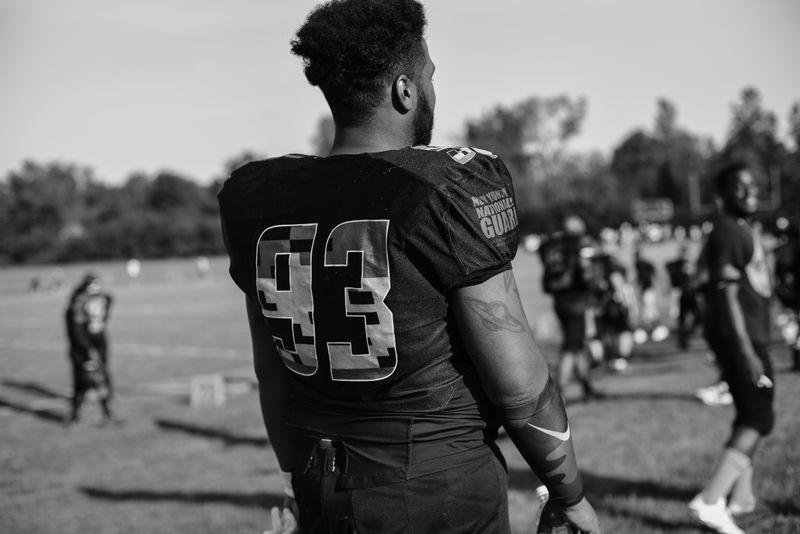Sport Man Utd legend claims former Nottingham Forest star Roy Keane ‘is his own biggest problem’
Introduction
In a recent interview, former Manchester United striker Dwight Yorke shared his thoughts on his ex-teammate and former Nottingham Forest player Roy Keane. Yorke believes that Keane’s “say it as you see it” attitude has prevented him from achieving success as a top-level manager. Yorke praises Keane’s leadership qualities but suggests that his straightforward approach hinders his ability to navigate the complexities of management.
The Potential of Roy Keane
Yorke acknowledges that during their time together at Manchester United, he saw the potential for Keane to become a successful manager. Keane’s leadership skills and the respect he commanded in the dressing room were evident qualities that are crucial for a successful manager. However, Yorke believes that Keane’s own personality and communication style have hindered his managerial career.
Keane’s No-Nonsense Analysis
Since retiring from playing, Keane has gained recognition for his honest and no-nonsense analysis as a pundit. His blunt assessments of teams and players have made him a popular figure among fans and viewers. However, Yorke suggests that this same attitude has limited Keane’s managerial prospects. Keane’s straightforward approach, where he says what he sees without sugarcoating or diplomacy, can create conflicts and strain relationships with players, club owners, and other figures in football.
Being His Own Problem
Yorke characterizes Keane as his own “biggest problem.” While Keane’s honesty and authenticity may be commendable, Yorke argues that a more guided and strategic approach to communication could have propelled Keane to the top-level management positions he aspired to. Yorke suggests that if Keane had been more diplomatic and tactful in his interactions, he could have been the manager of Manchester United today.
Learning from Keane
Despite his assessment of Keane’s drawbacks as a manager, Yorke acknowledges the positive experiences and lessons he gained from playing under Keane at Sunderland. Yorke highlights the transition he witnessed during his time at the club and how it shaped his own understanding of leadership. He admits to learning both what to emulate and what to avoid based on Keane’s approach.
Philosophical Discussion: Authenticity vs. Diplomacy
The viewpoints presented by Yorke and Keane’s contrasting approaches raise interesting philosophical questions about leadership and communication in the world of sport and beyond. Is authenticity more valuable than diplomacy, or is there a need to strike a balance between the two? Keane’s no-nonsense analysis is admired by many for its straightforwardness and lack of pretense. However, Yorke’s comments suggest that while authenticity has its merits, it can also be a double-edged sword when it comes to management positions.
The Complexity of Management
Managing a football team involves navigating various relationships, such as those with players, staff, supporters, and club owners. Effective communication and relationship management are essential skills for successful managers. Keane’s unfiltered approach may resonate with some players, but it can also lead to strained relationships and conflicts with others. Striking the right balance between authenticity and diplomacy is crucial for achieving long-term success in managerial roles.
Editorial: The Dilemma of Leadership Styles
The conversation surrounding Roy Keane’s managerial career raises important questions about the trade-off between authenticity and diplomacy in leadership positions. It prompts us to consider whether there is a need for leaders to tailor their communication styles to different contexts and individuals. While some may appreciate the unfiltered honesty of a leader like Keane, others may prefer a more tactful and diplomatic approach.
Advice for Aspiring Managers
For aspiring managers, Yorke’s comments on Keane serve as a valuable lesson on the importance of communication and relationship management. It highlights the need to develop a leadership style that balances authenticity with diplomacy. Being true to oneself and maintaining integrity are essential, but understanding the nuances of communication and adapting to different situations can help navigate the complexities of management more effectively.
In conclusion, Dwight Yorke’s assessment of Roy Keane’s managerial career sheds light on the challenges and dilemmas faced by leaders in the world of sports. The discussion surrounding authenticity versus diplomacy raises thought-provoking questions about effective communication and relationship management. Aspiring managers can learn from Keane’s example, emphasizing the need to strike a balance between staying true to oneself and adapting to the demands of the role. Ultimately, the path to success lies in finding the right mix of authenticity and diplomacy in leadership.

<< photo by Emma Bauso >>
The image is for illustrative purposes only and does not depict the actual situation.
You might want to read !
- Roy Keane and Aston Villa Legend Discuss Manchester United’s Future
- Aitch’s Electrifying Glastonbury Performance Unveils Manchester United’s New Kit
- Zidane Iqbal’s Potential Departure: Manchester United’s Permanent Goodbye?
- Remembering Alex Graham: A Rising Star’s Tragic Departure
- Roberto Firmino on the Verge of Joining Al-Ahli: A Game-Changing Acquisition
- Dreams Turn into Reality: Hughes Predicts World Record 9.83 Run
- Editorial Exploration: Reflecting on the Life and Legacy of Former Coventry City Striker Cedric Roussel
Article Title: Celebrating the Legacy: Remembering the Life of Former Coventry City Striker Cedric Roussel
- Alpine’s €200m Funding Boost: Hollywood Power and More Backing in Sight
- Glastonbury 2024: A Sneak Peek into the Festival’s Dates and Line-Up
- Tragedy Strikes: Exploring the Impact of Sheffield Steelers’ Alex Graham’s Sudden Death
- Breaking Boundaries: Introducing the Enigmatic Ensemble of We Hunt Together
- Game, Set, Match: GB’s Dart and Burrage Triumph in Eastbourne




